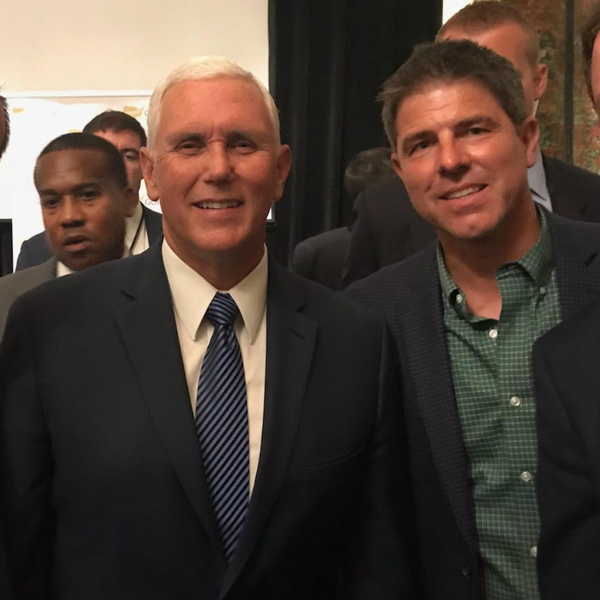
Here’s your presidential election coverage in a nutshell.
Last week Donald Trump delivered his big immigration speech in Phoenix, uttering this inflammatory claim: “Hillary Clinton has pledged amnesty in her first 100 days, and her plan will provide Obamacare, Social Security and Medicare for illegal immigrants, breaking the federal budget.”
Suffice it to say that every word was categorically false. Clinton hasn’t proposed “amnesty.” Undocumented aliens aren’t eligible for Social Security, Medicare or Obamacare. Period.
Trump’s statement is not merely a falsehood, but an inflammatory, hurtful one—convincing low-information voters that their tax money is being misused.
Something closer to the opposite is true. Many undocumented workers pay taxes without getting benefits.
Nobody said boo. The big news was that Trump did a decent job reading the speech from a teleprompter. (A practice he once scorned, but never mind.) He also looked “presidential” standing tall next to Mexico’s dapper little chief executive—a visual worth the trip to Mexico City.
Meanwhile, the Associated Press posted the following to its twitter feed: “BREAKING: AP analysis: More than half those who met Clinton as cabinet secretary gave money to Clinton Foundation.”
That too is breathtakingly false. As James Fallows pointed out in The Atlantic, “the AP came up with its claim that ‘more than half’ the people Hillary Clinton met while Secretary were donors, only by deciding not to count the overwhelming majority of people she met.)” Specifically, the AP ignored the literally thousands of US and foreign government figures Clinton dealt with during her four year term.
Looked at another way, Clinton met with 54 of the Foundation’s more than 7000 donors (all publicly posted on its website). And who were they? The one the AP found most concerning was one Muhummad Yunus—neglecting to mention (as Washington Monthly did) that the Bangladeshi economist “won the Nobel Peace Prize in 2006, the United States Presidential Medal of Freedom in 2009 and the Congressional Gold Medal in 2010.”
A philanthropist himself, Yunus has been a personal friend of Hillary Clinton’s since the 1980s.
Another visitor the AP found notable was Crown Prince Salman of Bahrain, that Persian Gulf ally’s head of state. Reporters generated the appearance of scandal by trusting a shrill press release from Judicial Watch—a secretly-funded foundation that exists purely to file lawsuits and make bizarre allegations against the Clintons.
But no, the Prince never remitted a reported $32 million in what Trump called a “pay to play” donation to the Clinton Foundation. He’d actually announced a scholarship fund benefitting students in his own country at a 2005 meeting of the Clinton Global Initiative—four years before Hillary Clinton became Secretary of State.
Any reporter who thinks the State Department should have stiffed the guy understands nothing about international affairs.
Another shady Clinton visitor was acclaimed author and Holocaust survivor Elie Weisel.
“Unfortunately,” Joe Conason notes with impressive understatement “many Washington reporters seem eager to repeat any accusation brandished against the Clintons, even from a dubious source, without rudimentary checking.”
But then what would an un-scandal be without the New York Times, the fons et origo of bogus Clinton narratives? Reporter Eric Lichtblau went to town on Clinton Foundation aide Doug Band’s request for a special diplomatic passport to enter North Korea.
Short version: he didn’t get one.
Longer explanation: Band wanted to accompany the Big Cheese to the world’s craziest communist regime to negotiate the release of two wrongfully-imprisoned American journalists. A mission Bill Clinton accomplished in 2009 to near-universal acclaim.
And this is suspicious how? Well, it raised “new questions about whether people tied to the Clinton Foundation received special access at the department.” And in the peculiar optics of Washington journalism, questions invariably generate “shadows.”
Indeed, an enterprising search by Talking Points Memo found twenty Times-generated shadows looming over Hillary’s campaign since last May—shades cast by everything from Bill Clinton’s presidency to Anthony Weiner’s penis. “Questions” and “shadows,” of course, are journalistic shorthand for “we can’t prove anything, but we don’t like her.”
Indeed, to anybody capable of close reading and critical thinking—which excludes too many voters and most TV talking-heads—Washington Monthly’s Paul Glastris gets it right: “stories on the Clinton Foundation over the last two weeks fit the same basic pattern: the facts dug up by the investigation disprove the apparent thesis of the investigation….In virtually every case we know of, it’s clear that Hillary and her staff behaved appropriately.”
Politically, however, that’s not how it plays on TV, where allegations often morph into verdicts with no intervening stages of proof. For a combination of reasons, Hillary has never dealt well with challenges to her integrity, although you’d think she’d be getting used to it.
Like Al Gore’s in 2000, her campaign appears flatfooted, its pushback ineffectual and unheard.
They’d better wise up. And soon.
Photo: Republican presidential nominee Donald Trump speaks to supporters through a bullhorn during a campaign stop at the Canfield County Fair in Canfield, Ohio, U.S., September 5, 2016. REUTERS/Mike Segar








